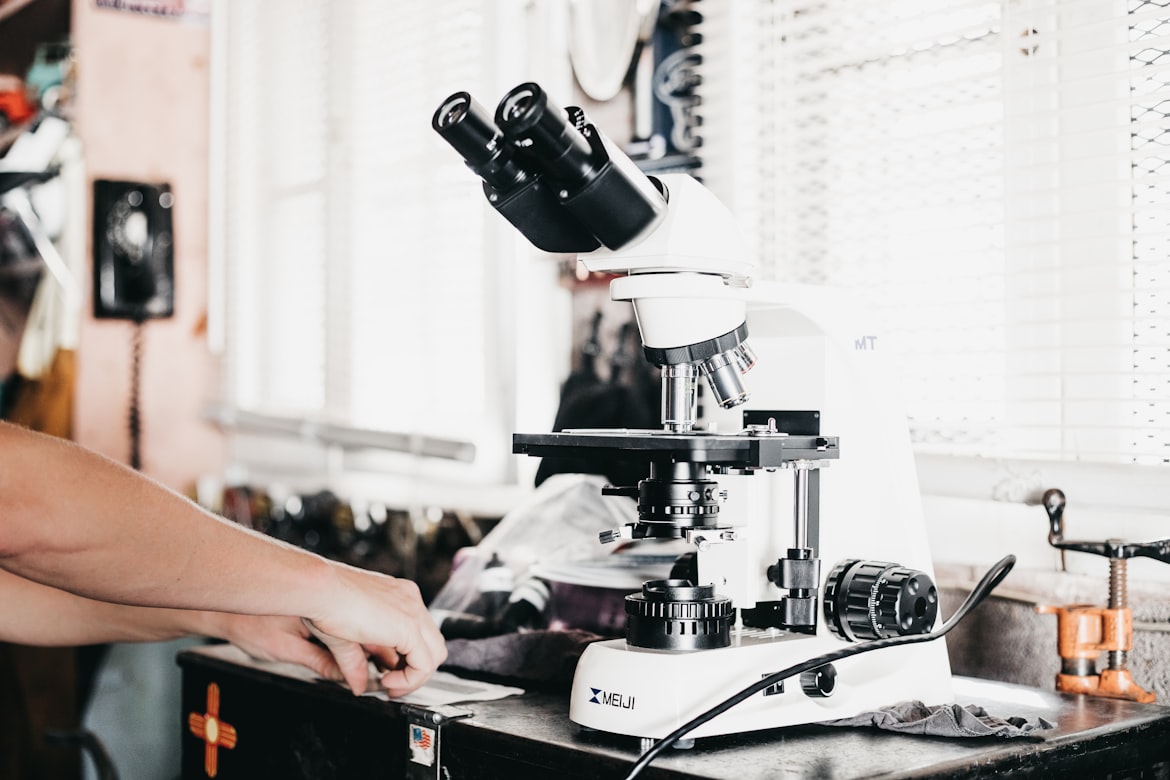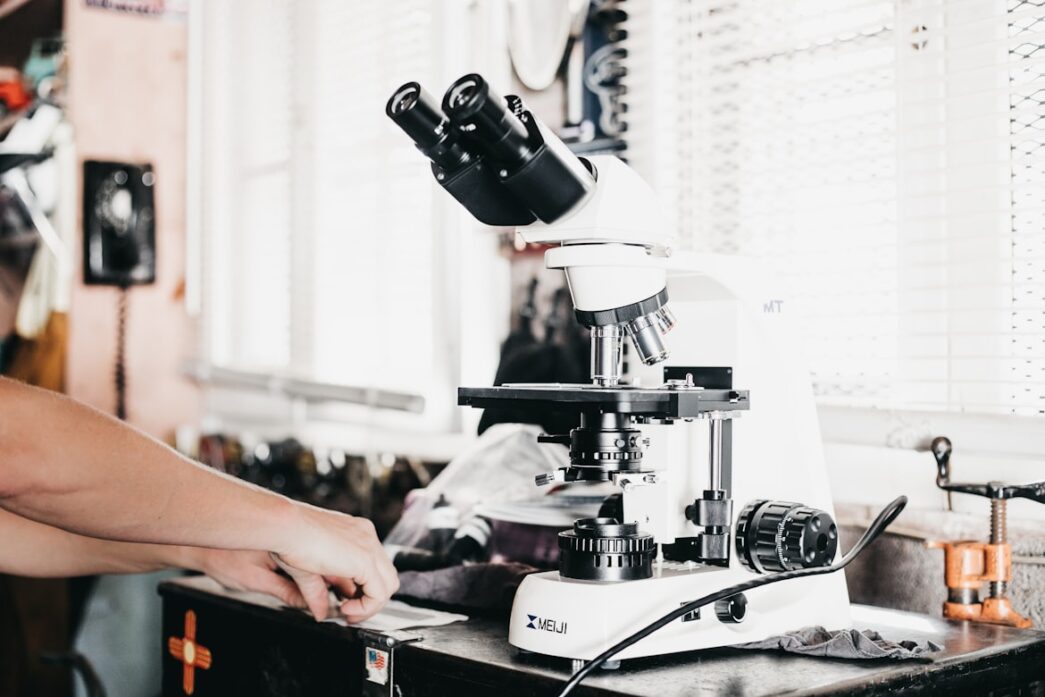Livagen peptide is a small chain of amino acids that has garnered interest within the scientific community for its possible biological influence. Originating from research into bioregulatory peptides, Livagen is considered a promising compound that might play significant roles in studies exploring various physiological processes. This article explores the peptide’s hypothesized properties, potential mechanisms of action, and prospective implications in biotechnology research.
Structural Characteristics
Livagen peptide, a bioregulatory peptide, comprises a specific sequence of amino acids facilitating its interaction with biological molecules. Its structure is believed to enable it to potentially bind to receptors and other proteins, which may lead to the modulation of various biochemical pathways. The exact amino acid sequence and three-dimensional conformation of Livagen are crucial in understanding its potential impacts on an organism’s physiological functions.
Potential Mechanisms of Action
● Cellular Regulation
Investigations purport that the Livagen peptide might influence cellular regulation by interacting with DNA and histones. It has been hypothesized that Livagen may bind to specific sites on DNA, potentially modulating gene expression. This interaction may lead to alterations in the synthesis of proteins involved in cellular growth, differentiation, and repair processes.
Additionally, research indicates that Livagen might interact with histones, the proteins around which DNA is wound. By influencing histone acetylation and methylation, Livagen might theoretically affect chromatin structure and gene accessibility, thereby playing a role in the epigenetic regulation of gene expression.
● Antioxidant Implications
Research indicates that the Livagen peptide may possess antioxidant properties. It has been suggested that the peptide might scavenge free radicals, thereby reducing cell oxidative stress. Oxidative stress is a known contributor to cellular damage and cellular aging, and by mitigating this process, Livagen might support cellular longevity and function. The specific mechanisms through which Livagen exerts any antioxidant impacts are still under investigation. Still, they might involve upregulating endogenous antioxidant enzymes or directly interacting with reactive oxygen species.
● Immunity
There is speculation that Livagen might modulate the immune system. The peptide may potentially influence the activity of various immune cells, including T cells, B cells, and macrophages. Investigations purport that by affecting cytokine production and the activity of these cells, Livagen may help maintain immune homeostasis. This immune-modulatory impact might be particularly relevant to studies examining conditions where the immune system is overactive or underactive.
Livagen Peptide Research Overview
● Biotechnology
In biotechnology, the Livagen peptide’s properties suggest several potential implications. For instance, its possible influence in gene expression modulation might make it a valuable compound for further exploration in genetic research and engineering. Scientists might gain deeper insights into gene function and regulation by manipulating Livagen action to potentially selectively activate or repress specific genes. Additionally, the peptide’s antioxidant characteristics might be harnessed to support the stability and longevity of biotechnological studies and outputs.
● Cellular Aging Research
Findings imply that cellular aging research is another area where Livagen peptide might hold significant potential. Given its possible roles in cellular repair and oxidative stress reduction, Livagen might be investigated as a candidate for mitigating cell aging. Researchers speculate that the peptide might support maintaining physiological functions by modulating processes that contribute to cellular senescence and damage.
● Tissue
The peptide’s potential to influence cellular differentiation and growth suggests it might be relevant in studies related to tissue regeneration. Livagen might theoretically be applied in regenerative research to promote the repair and regeneration of damaged tissues. This implication might be particularly relevant in wound healing, organ repair, and mitigating degenerative diseases.
● Neuroprotection
There is also interest in exploring the Livagen peptide’s possible neuroprotective properties. It has been hypothesized that the peptide might support neuronal function by reducing oxidative stress and modulating neuroinflammatory responses. If these impacts are validated, Livagen might be a candidate for research into neurodegenerative conditions such as Alzheimer’s and Parkinson’s diseases.
Livagen Peptide: Future Directions
The future of Livagen peptide research is promising but requires extensive investigation. Key areas for future research include:
● Mechanistic Studies: Detailed studies are needed to elucidate the precise mechanisms through which Livagen may exert its impacts. This includes understanding its interactions at the molecular level and identifying the pathways it may influence.
● Comparative Studies: Comparing Livagen with other bioregulatory peptides might provide insights into its unique properties and potential. Such studies might help to position Livagen within the broader context of peptide-based research and biotechnological implications.
Conclusion
Livagen peptide represents a fascinating area of research with the potential to impact various fields. Its hypothesized properties, including gene regulation, antioxidant activity, immune modulation, and potential implications in cellular aging and tissue regeneration, make it a compound worthy of further investigation. As research progresses, Livagen may emerge as a valuable tool in understanding and harnessing the complex biochemical processes that underpin many physiological functions.
References
[i] Khavinson VKh, Lezhava TA, Monaselidze JG, Dzhokhadze TA, Dvalishvili NA, Bablishvili NK, Ryadnova IY. Effects of Livagen peptide on chromatin activation in lymphocytes from old people. Bull Exp Biol Med. 2002 Oct;134(4):389-92. doi: 10.1023/a:1021924702103. PMID: 12533768.
[ii] Khavinson VK. Tissue-specific effects of peptides. Bull Exp Biol Med. 2001 Aug;132(2):807-8. doi: 10.1023/a:1013058701974. PMID: 11713572.
[iii] Lezhava T, Jokhadze T, Monaselidze J, Buadze T, Gaiozishvili M, Sigua T, Khujadze I, Gogidze K, Mikaia N, Chigvinadze N. EPIGENETIC MODIFICATION UNDER THE INFLUENCE OF PEPTIDE BIOREGULATORS ON THE “OLD” CHROMATIN. Georgian Med News. 2023 Feb;(335):79-83. PMID: 37042594.
[iv] Riadnova IIu, Filippov SV, Iuzhakov VV. Funktsional’naia morfologiia organotipicheskoĭ kul’tury pecheni pri deĭstvii peptida livagena [Functional morphology of an organotypic liver culture exposed to the peptide livagen]. Adv Gerontol. 2002;10:88-94. Russian. PMID: 12577697.
[v] Dzhokhadze TA, Buadze TZh, Gaiozishvili MN, Kakauridze NG, Lezhava TA. [Genomic instability in atherosclerosis]. Georgian Med News. 2014 Nov;(236):82-6. Russian. PMID: 25541832.













